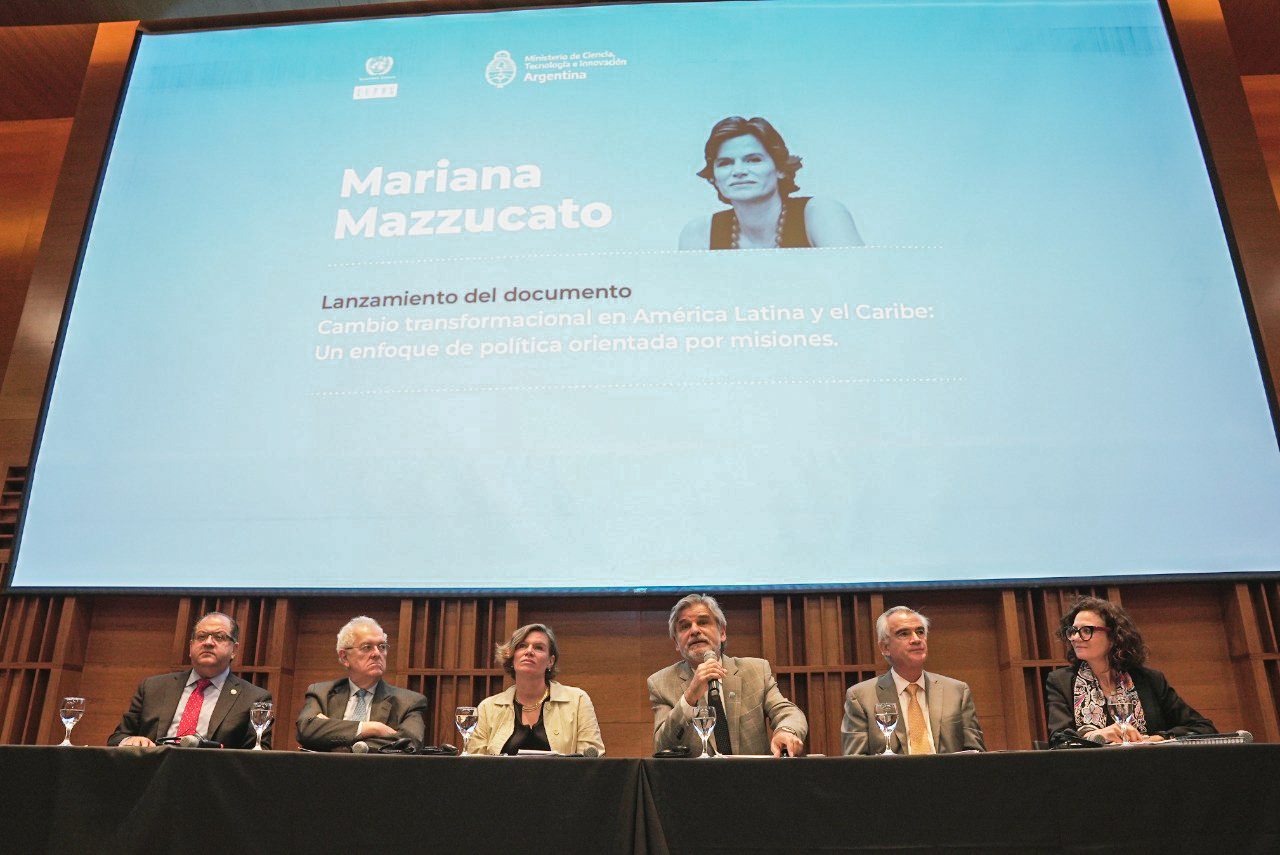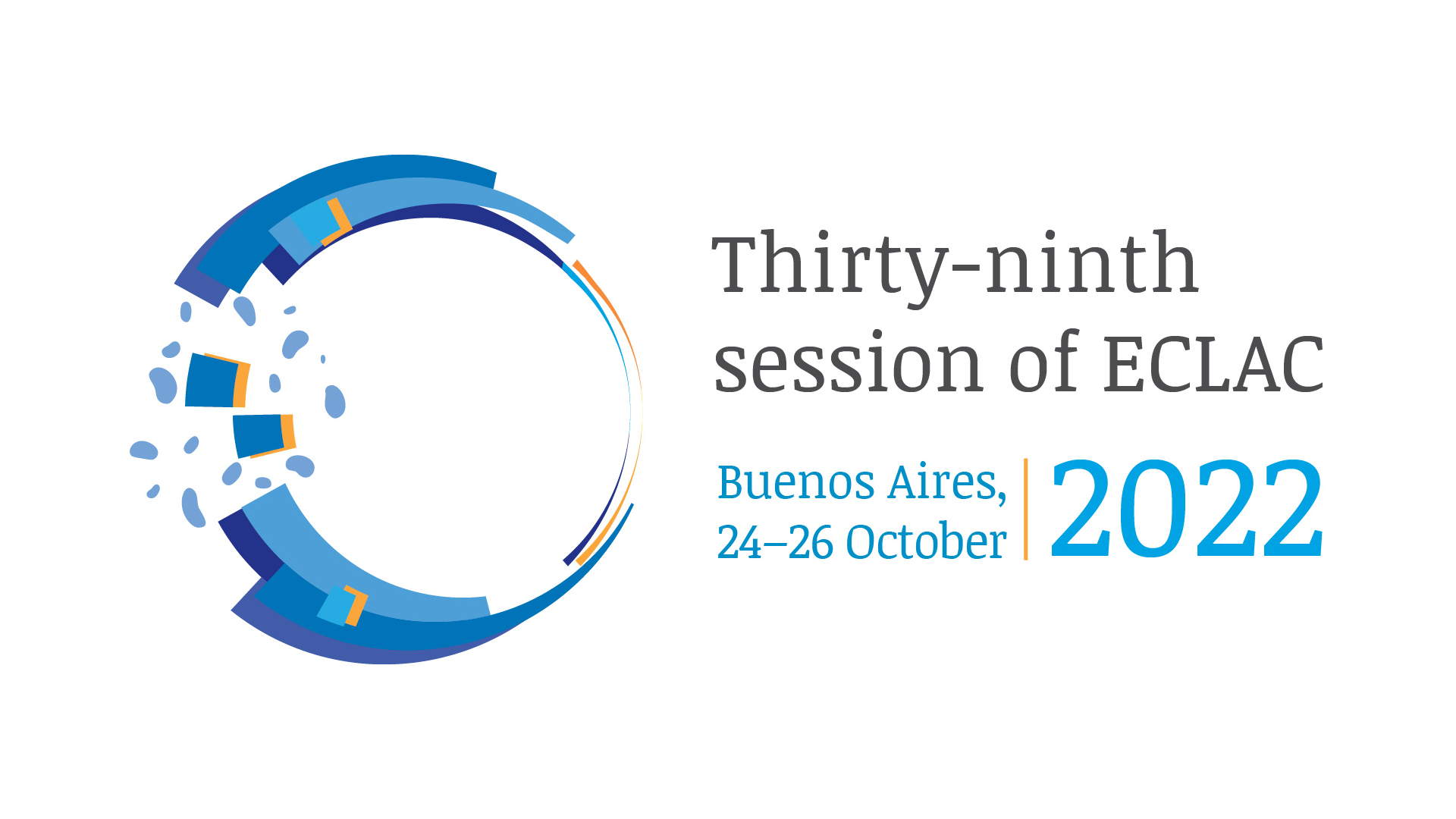New Report Calls on Government Leaders in Latin America to Advance Modern Industrial Strategies Oriented Around Climate and Inclusion Goals
A publication by prominent economist Mariana Mazzucato was presented at a side event of the thirty-ninth session of ECLAC, which is taking place on October 24-26 in Argentina.

Professor Mariana Mazzucato, Founding Director of the Institute for Innovation and Public Purpose (IIPP) of University College London (UCL), presented today a new report in which she addresses transformational change in Latin America and the Caribbean, at a side event of the thirty-ninth session of the Economic Commission for Latin America and the Caribbean (ECLAC), which is taking place on October 24-26 in Buenos Aires, Argentina.
The document entitled Transformational change in Latin America and the Caribbean: A mission-oriented approach, which was commissioned by ECLAC, was unveiled at the Ministry of Science, Technology and Innovation. Participating along with Professor Mazzucato were José Manuel Salazar-Xirinachs, Executive Secretary of ECLAC, and Daniel Filmus, Minister of Science, Technology and Innovation of Argentina. The report was commented upon by Cecilia Todesca, Secretary for International Economic Relations at the Ministry of Foreign Affairs, International Trade and Worship of Argentina; José Antonio Ocampo, Minister of Finance and Public Credit of Colombia; and Luis Felipe López Calva, Global Director of Poverty and Equity at the World Bank.
The document calls on governments in Latin America and the Caribbean to advance modern industrial strategies oriented around climate and inclusion goals, in a radical departure from traditional economic development models.
In her report, Professor Mazzucato stresses the need for structural reform to address lagging productivity, limited fiscal space, and weak public sector capacity in the region. She sets out clear recommendations for aligning each country’s economic growth trajectory with tackling social, economic and environmental problems through a new “mission-oriented” approach to investment, innovation and industrial strategy.
“Transforming these structural challenges into structural opportunities for inclusive growth, sustainable development and shared prosperity is what this report is about. It is a question of not only talking about the rate of economic growth, but crucially also about its direction,” Professor Mazzucato affirmed.
In her presentation, the UCL Professor referred to the pandemic to exemplify this. “COVID-19 should have been a massive awakening moment on the public-private partnership. Because in many countries things should have been done, but they were done too late. The lack of preparedness was actually quite stark,” she said.
Mazzucato noted that the crisis was not used to help steer the economy in a way that would truly “build back better.” And she added: “The question is, how can we actually solve the big, grand challenges of our time – health, digital divide, climate – but in such a way that is driven by investment and innovation, which, if it works well, can really help us solve or at least address these massive structural issues.”
In his introduction to the presentation, the Executive Secretary of ECLAC, José Manuel Salazar-Xirinachs, indicated that the most innovative aspect of Professor Mazzucato’s work is the focus on missions that she proposes for productive development policies (PDPs), especially in the area of governance, of the way to organize the collective efforts of different actors, in particular the private sector, public institutions, academic and research-and-development institutions, workers’ organizations, financial institutions, and all those that may be relevant to growth, innovation and human talent for the specific sector or challenge.
“The history of the region’s development shows that market forces alone cannot solve the problems of growth, investment, employment and poverty. That is why it is more important than ever to harness the opportunity that this moment in time offers: formulating and implementing PDPs aimed at productive transformation and diversification and that would contribute to social inclusion and environmental sustainability,” ECLAC’s highest authority stated.
“We hope this document helps inspire governments in formulating renewed strategies and industrial policies, and productive development policies in general, in a new era of exchanging knowledge and experiences among the region’s governments,” Salazar-Xirinachs emphasized.
For media queries, contact Helen Tunnicliffe at iipp-mediaenquiries@ucl.ac.uk
For other queries regarding the thirty-ninth session of ECLAC, contact the organization’s Public Information Unit in Santiago, Chile. Email: prensa@cepal.org; Telephone: (56) 22210 2040.
Related content

Thirty-ninth session of ECLAC
The thirty-ninth session of the Economic Commission for Latin America and the Caribbean (ECLAC) will be held from 24–26 October 2022, at the Centro Cultural Kirchner in Buenos Aires, pursuant to…
Related event

Thirty-ninth session of ECLAC
The thirty-ninth session of the Economic Commission for Latin America and the Caribbean (ECLAC) will be held from 24–26 October 2022, at the Centro Cultural Kirchner in Buenos Aires, pursuant to…
Subregional headquarter(s) and office(s)
National Office, Buenos AiresType
Country(ies)
- Latin America and the Caribbean